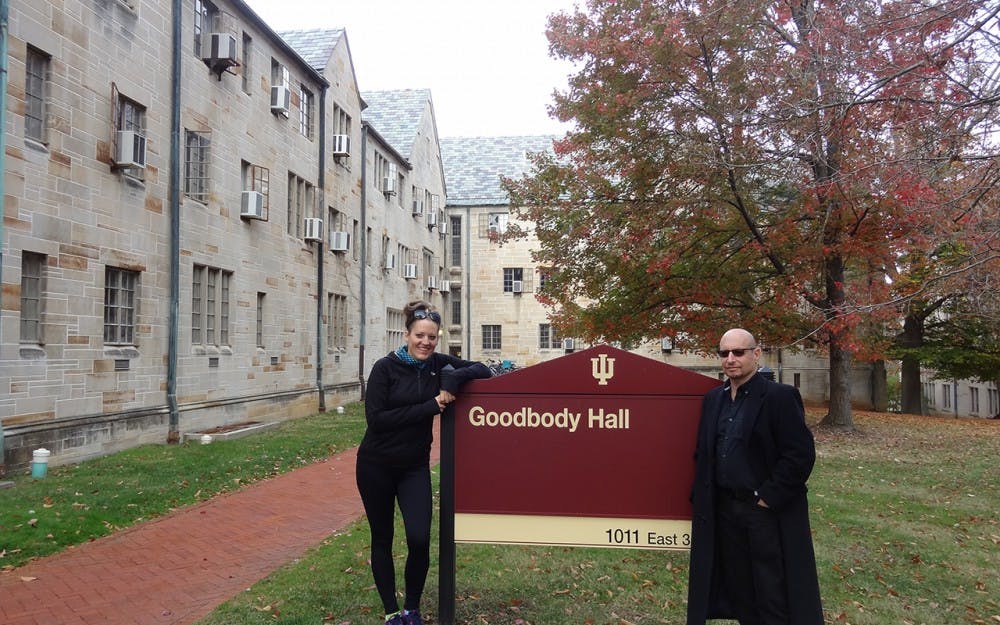Jackson Heights, New York, was where former IU professor Elliot Sperling was happiest, where he mingled with countless Tibetans.
It was also where Sperling died and where he left an unfinished book and unfinished translations among the walls of bookshelves in his apartment.
“He wasn’t done,” said Sara Conrad, Sperling’s student, an IU graduate and a current IU instructor. “He had so much more to give, and he was so ready to give it.”
Sperling, an IU Tibetan studies professor, died of a heart attack in January 2017. He was 66 years old. During the past two months, professors, activists, students and scholars gathered throughout Australia, Europe, Asia, the United States and Canada to mourn Sperling, a leading Tibet scholar and human rights activist.
Sperling was born Jan. 4, 1951, in the Bronx, New York City. After studying at Queens College, he set off on an overland trip from Istanbul to Delhi, India. In the city of Dharamsala, India, in a valley shadowed by the Dhauladhar mountains, he spoke to Tibetans about their struggles and was inspired to help them.
“He didn’t set out planning to change the world,” Conrad said. “He just wanted to speak the truth about Tibet.”
The truth was more complex than the simple, stereotypical view of Tibet as a Shangri-La. In his research, Sperling explained Tibet’s past as a warlike empire with a great army and its present as the area faces some of worst human rights violations in the world.
Because of his outspoken support for Uighar scholar Ilham Tohti, who was sentenced to life in prison for criticizing China’s treatment of minorities, Sperling’s visa was rejected in Beijing. He was interrogated, detained and even followed to the bathroom. They put him on a plane and sent him back to the New York airport.
Sperling saw his denied visa as a badge of honor and used it to encourage his students at IU to do what’s right.
“He said it was a small price to pay for a man sentenced to life in prison,” Conrad said.
Sperling traveled around the world speaking out about Chinese involvement and human rights violations in Tibet. What made him stand out as a scholar and activist was his language skills.
Sperling was fluent in Chinese and Tibetan, so he was one of the first to compare historical sources from both. Through his analysis, Sperling found that Tibet wasn’t always a part of China like many claimed.
His work also gave an entire people access to their history, Conrad said. Many Tibetans can no longer speak their language, and those who do would not have access to the documents that detail their history, but Sperling made these writings and his analyses public for the Tibetan people.
“What kind of gift is that to give an entire people their history?” Conrad said. “It’s everything.”
As a professor, Sperling was passionate but tough, Conrad said. He required his students to take both Chinese and Tibetan. Then he’d plop 10 to 20 books in both languages in front of them, give them a list of questions, tell them to find the answer and walk away.
On Conrad’s desk is a book titled “Prisoners of Shangri-la.” It was the same book she had when she walked into her first class with Sperling 10 years ago. Now it is also the book she uses to teach.
“It’s really come full circle,” Conrad said.
She said she hears herself telling the same stories to her students as Sperling once did.
Sometimes, she can hear him tell those stories in her mind.
“It’s his course that I’m teaching,” she said. “I’m taking the reins, but it’s his lineage. It’s him.”
Conrad said Sperling was always there for her even beyond academics. When she was going through a difficult time in her life, he came down to Little Tibet restaurant to make sure she was OK. When she didn’t have a couch, he gave her his.
In the 10 years they knew one another, Conrad said Sperling taught her to speak the truth no matter what others said, to love the “other” and to recognize that people are all human and complex.
In their last email exchange, Sperling told her to be confident in the skills he taught her.
Every time she writes, she said she finds herself wanting to send her writing to him for feedback.
Every time she stumbles across an interesting article, she said she wants to send it his way.
“I don’t think there will be a day that goes by that I won’t think of him or wish he was here,” she said. “I just want him to be here with us forever.”
Sperling is survived by his daughter, Coline.






